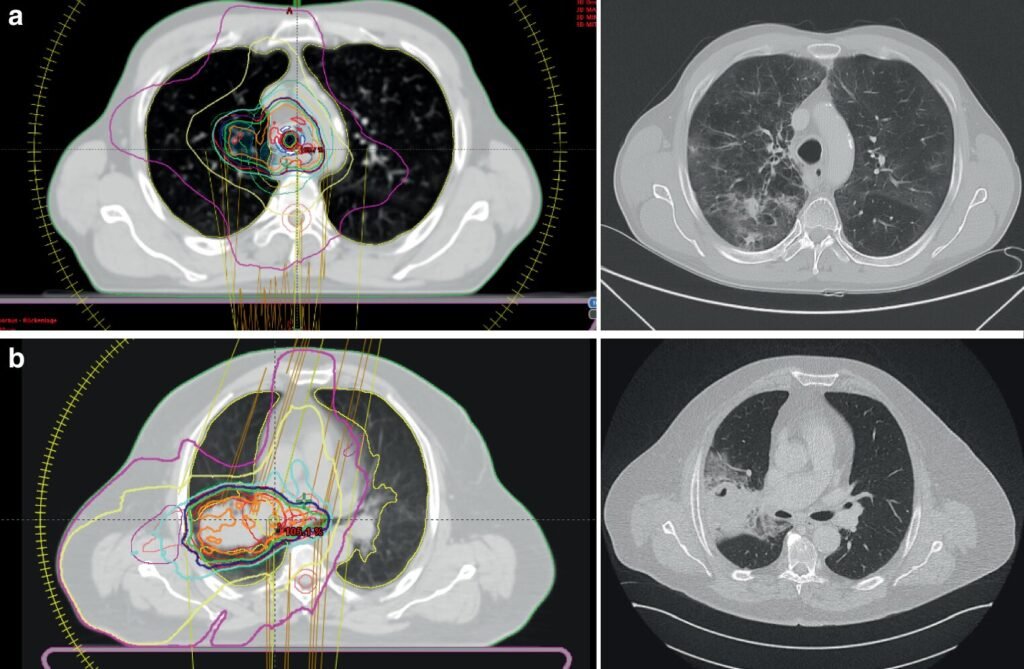The combination of higher-than-usual doses of radiation with immunotherapy for inoperable lung cancer has shown promising results in a recent study conducted by Karl Landsteiner University of Health Sciences (KL Krems). The study, published in the journal “Strahlentherapie und Onkologie,” found that patients who received 70 Gy of radiation prior to treatment with the immune checkpoint inhibitor durvalumab did not experience an increased risk of severe lung inflammation (pneumonitis) compared to those given a lower dose.
Lung cancer is a common and deadly form of cancer, particularly in patients with inoperable stage III non-small cell lung cancer (NSCLC). The standard treatment involves concurrent chemoradiotherapy (CCRT) followed by immunotherapy with durvalumab, especially for tumors expressing the PD-L1 protein. However, both radiotherapy and immunotherapy carry the risk of inducing pneumonitis, prompting researchers to explore the safety and efficacy of higher radiation doses.
The retrospective study included nearly 40 patients, with 29 receiving the higher radiation dose and 10 receiving a lower dose. The incidence of pneumonitis was similar in both groups, with most cases being mild to moderate in severity. Notably, the survival data showed a significant benefit in the high-dose group, with over 93% of patients still alive one year after treatment.
Careful treatment planning ensured that radiation-induced lung damage was avoided, with the mean lung dose (MLD) kept below the critical threshold of 20 Gy. The study concluded that administering a higher radiation dose to the tumor does not necessarily increase the risk of inflammatory side effects, as long as safety limits are followed.
The findings suggest the potential for more personalized treatment strategies for patients with unresectable NSCLC. Dr. Felix Schragel, a specialist in pulmonology at University Hospital Krems, emphasized the importance of re-evaluating treatment thresholds in light of evolving approaches like immunotherapy.
The study highlights the role of intensified radiotherapy in improving overall survival for selected patients with stable lung function. It also underscores the need for ongoing research to inform clinical practice and adapt treatment protocols to optimize outcomes for patients with lung cancer.
For more information, the study titled “High radiation dose in chemoradiotherapy followed by immunotherapy with durvalumab in patients with stage III non-small cell lung cancer does not increase the risk for pneumonitis” can be accessed in the journal “Strahlentherapie und Onkologie.” The DOI for the study is 10.1007/s00066-025-02369-0.
This research was provided by Karl Landsteiner University of Health Sciences and represents a significant advancement in the field of lung cancer treatment.


